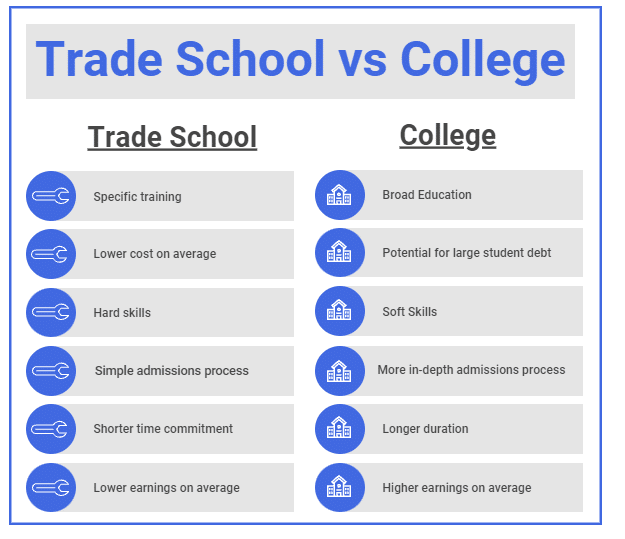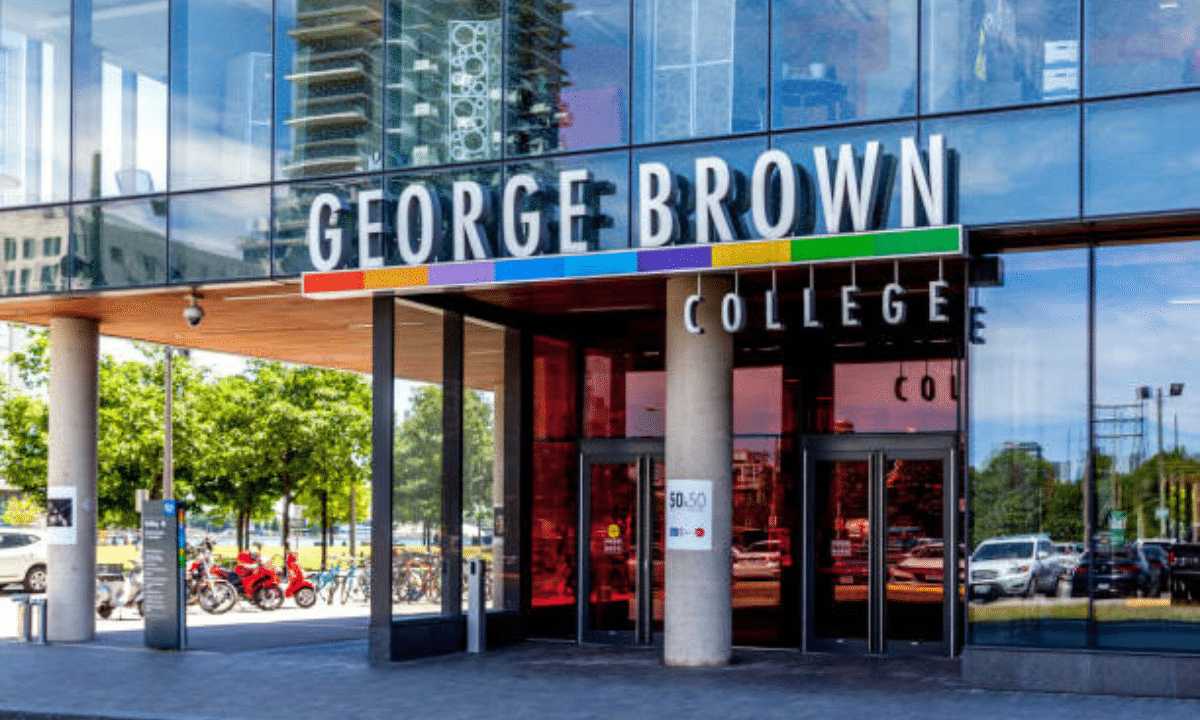To become a marketing manager, a master’s degree in marketing is highly necessary. A marketing master’s degree can tighten individuals’ grasp on the complexities of the modern consumer experience.
Graduate marketing degree programs treat analytics, branding, campaign planning, and market research topics.
This article aims to help you find the best Marketing Master Degree Programs you can take.
Let’s dive in!
Table of contents
- What Is Marketing?
- Why Should I Study a Masters In Marketing?
- What Can You Do With A Master’s Degree In Marketing?
- What Will I Learn In A Marketing Master’s Degree Program?
- What Does A Master’s In Marketing Program Involve?
- Where Can I Study Masters in Marketing?
- 20 Best marketing master degree Programs
- 1. Columbia University in the City of New York
- 2. Texas A&M University
- 3. University of Maryland, College Park
- 4. Johns Hopkins University
- 5. Michigan State University
- 7. University of Southern California
- 8. Georgia State University
- 10. University of Houston
- 11. University of South Florida
- 12. Clemson University
- 13. Syracuse University
- 14. University of Cincinnati
- 15. The University of Alabama
- 16. Saint Joseph’s University
- 17. Hofstra University
- 18. DePaul University
- 19. University of Colorado Denver – Anschutz Medical Campus
- 20. Purdue University – Purdue Polytechnic Lafayette
- Conclusion
- References
- We Also Recommend
According to the U.S. Bureau of Labor Statistics, there will be a 10% increase in marketing jobs by 2026. Plus, the median pay in 2018 was $132,620 per year.
Therefore, a master’s degree in marketing helps to better learn and utilize that data in this profession. Additionally, the expertise gained from a master’s program is attractive to employers.
What Is Marketing?
Marketing is winning interest in your company’s product or service. This occurs through market research, analysis, and understanding your ideal customer’s interests. Furthermore, marketing cuts across all aspects of a business, including product development, distribution methods, sales, and advertising.
Furthermore, marketing entails product development, market research, product distribution, sales strategy, public relations, and customer support.
Why Should I Study a Masters In Marketing?
If you want to pursue a career in marketing, a master’s in marketing can be a high career accelerator and booster.
A master’s degree in marketing gives a wide design of information on consumers, their needs, and how to keep up with the ever-changing buyer’s market.
In addition, career growth in marketing continues to thrive while giving advanced degree marketers opportunities in several professional sectors. Master’s degrees in marketing highlight communications, finance, and managerial skills in their curricula.
What Can You Do With A Master’s Degree In Marketing?
Career growth in marketing continues to grow while giving advanced degree marketers opportunities in several occupational sectors.
Marketing is a growing industry; in 2012, there were over 200,000 in marketing in the US. It is expected to grow by 12% in 2024, according to monster.
With a master’s degree in marketing, you can easily fit into the following high-earning jobs.
Market Research Analyst
Market research analysts utilize consumer data to assess what products and services the public will and will not buy.
They work with companies to closely evaluate and understand consumer trends as well as to forecast future developments.
Furthermore, market research analysts must have strong math and statistics skills, communication and decision-making expertise, and a strong background in finance and business, all skills which can be acquired with a master’s degree in marketing.
Advertising, Promotions, and Marketing Managers
Advertising, promotions, and marketing managers create campaigns to promote goods and services within a company or an organization.
Also, they work with other marketers, art designers, sales workers, and financial personnel to structure successful campaigns. As managers, these individuals also can work with others in a business environment as supervisors.
Survey Researcher
Survey researchers work with data from surveys taken by companies, non-profit organizations, political interest groups, and other consumer-based institutions to ascertain what people want, need, and care about in various spheres.
A master’s degree in marketing would allow for research positions in this field, and programs with internships or fellowships are highly desirable.
Public Relations Specialist
A public relations specialist strengthens the positive aspects of a company or organization and often creates campaigns that present visual or audio images to the public. These professionals can work in sales, politics, or in the private sector for public individuals.
Public Relations and Fundraising Manager
Unlike a public relations specialist, the public relations and fundraising manager directs a marketing campaign for fundraising and donation activity.
Public relations and fundraising managers are concerned with the public image of an individual, company, or organization and use their campaigns to improve this image in their efforts to bring in funds on an entity’s behalf. This position requires a master’s degree and most call for extensive related expertise.
What Will I Learn In A Marketing Master’s Degree Program?
A master’s degree in marketing offers a wide array of information on consumers, their needs, and how to keep up with the ever-changing buyer’s market.
Master’s degrees in marketing highlight communications, finance, and managerial skills in their curricula.
Advanced degree marketers use what they learn in their coursework to better design marketing campaigns, meet the needs of companies and consumers, and engage with the public most effectively and efficiently.
In the master’s program, you’ll learn the following;
Analytics for Marketing
Marking analytics equips students with information about different analytical tools used in marketing, various methods, and the ability to assess analytical data.
Furthermore, it emphasizes the customer and different variables that can factor into marketing preferences and reception by the public. Generally, the course helps students make better marketing decisions.
Consumer Conduct
This course incorporates information on the many factors that go into consumer decision-making. Economic, sociological, psychological, and ethical influences how consumers respond to marketing and individual products and services.
Consequently, this course covers these specific areas and how they can be used when designing marketing campaigns.
Management in Marketing
Marketing management teaches students marketing theories, strategies, and how to use them in practice.
Furthermore, marketing management provides information about designing and executing a marketing plan that best assesses and understands market opportunities.
Multicultural Marketing
Multicultural marketing studies marketing trends worldwide and gives students access to diverse groups of consumers and insights into their practices.
Hence, the course covers past marketing campaigns, their success and failure, and how marketing may proceed.
Ethics and Marketing
This course is designed to present students with the different types of questions marketers are faced with daily.
Theories of ethics and the subjective nature of the concept are examined using theories and case studies. Additionally, marketing rules, laws, and regulations are treated to provide students with practical, current information.
What Does A Master’s In Marketing Program Involve?
Master’s in marketing are ideally one-year programs with part-time and online options available.
The program usually consists of subjects such as; marketing research, marketing theories and practice, brand management, accounting and finance, and many added electives and masters’ thesis.
Additionally, you’ll learn how to conduct research qualitatively and quantitatively adequately.
Where Can I Study Masters in Marketing?
When looking at master’s programs, a proposed student should first consider the programs’ format. Most universities offer on-campus and online options, allowing students to choose what works best for them. See the best 20 marketing degree programs below.
These programs were selected according to our in-house ranking style with recourse given to tuition rate, student-to-faculty ratio, acceptance rate, and graduation rate.
20 Best marketing master degree Programs
1. Columbia University in the City of New York
Columbia University in New York offers a Master’s Degree in Marketing.
Its Master of Science in Marketing Science has a STEM-eligible curriculum centered on marketing analytics.
Hence, it is recommended that students develop a foundational understanding of a database programming language and statistical package before entry.
Course requirements comprise of Marketing Models, Mathematical Methods, and Multivariate Statistics. The programs also offer electives in Digital Marketing, Pricing Strategies, and Systematic Creativity in Business.
To crown the program, students can pursue a master’s thesis or take a doctoral course.
Graduate Tuition/Fees: $22,824
2. Texas A&M University
Texas A&M University’s Mays Business School awards a Master of Science in Marketing. The curriculum encompasses Analyzing Consumer Behavior, Branding and Marketing Communications, and Product Innovation courses.
All students must complete an internship, and most do in the summer between their first and second years.
Furthermore, the university’s Career Management Center supports students with internship placement and in their job search. The degree program spans four terms and is generally concluded in 16 months.
According to U.S. News & World Report, TAMU ranks at No. 66 in the nation and No. 44 for the best value.
Graduate Tuition/Fees: $19,554
3. University of Maryland, College Park
The Master of Science in Marketing Analytics will give you cutting-edge knowledge and skills to use marketing analytics for daily business usage.
The program will provide you with an avid understanding of the mathematical and statistical models and tools required for customer analysis in the context of marketing difficulties.
The study plan includes Business Ethics, Data Science, and Statistical Programs course requirements.
The Master of Science in Marketing Analytics curriculum comprises 12 courses. The program includes 8 required courses, 3 elective application courses, and an Action Learning Project.
Graduate Tuition/Fees: $17,241
4. Johns Hopkins University
JHU is deemed to be the nation’s first research university. It has campuses in Maryland and Washington, D.C., and international sections in China, Italy, and Singapore.
Johns Hopkins University’s Master of Science in Marketing program allows full- and part-time options. All students must take 12 credits of foundational business courses.
The core curriculum comprises three courses: Consumer Behavior, Marketing Research, and Marketing Strategy. Elective offerings include Designing Experiments, Social Media Analytics, and Strategic Market Intelligence. The degree can be completed in one full-time year or two part-time years.
Graduate Tuition/Fees: $29,066
5. Michigan State University
Michigan State University’s Master of Science in Marketing Research program offers full-time and online options.
Broad’s Master’s in Marketing Research can be designed to fit your schedule. Whether students come to campus or online, they encounter the same courses taught by renowned professors.
The plan includes courses on Consumer Insights, Data Mining, and International Marketing Research. On-campus students also complete a directed consulting project and a summer project or internship. Online students can choose between two requirements that can be fulfilled through projects and capstone courses.
The Master of Science in Marketing Research program at MSU has been ranked by Eduniversal, College Choice, and TFE Times as #1 among master’s programs, especially in marketing research in both the U.S.
Graduate Tuition/Fees: $16,684
6. The University of Texas at Dallas
The University of Texas at Dallas offers a highly flexible Master of Science in Marketing. Furthermore, it offers a choice of six tracks and over 60 courses to choose from
Students are expected to choose between tracks in Advertising & Branding, Business Development, Customer Insights & Analytics, Digital Marketing, Marketing Management, and Product Management. The degree can be completed in one to two years.
You must tender a bachelor’s degree certificate and GMAT/GRE test scores to be admitted.
U.S. News & World Report ranks UTD at No. 129 in National Universities and No. 117 for the best value.
Graduate Tuition/Fees: $10,036
7. University of Southern California
Founded in 1880, USC is the oldest private research university in California. The University of Southern California highlights the “personalized and global-focused curriculum” through its Master of Science in Marketing program.
Specializations are offered in Analytics and Consumer Behavior. Students discuss their career goals with the program’s Associate Director, who helps them plan their studies.
The program fuses real-world projects and case studies from global perspectives. Course taught include Advertising and Promotions; Fashion, Luxury, and Lifestyle Marketing; and Internet Marketing.
Graduate Tuition/Fees: $32,892
8. Georgia State University
Georgia State University offers a Master of Science in Marketing and a dual degree in marketing and big data analytics. The project-based Marketing curriculum focuses on customer and brand management, marketing research, digital and social media marketing, and data-driven marketing.
Furthermore, after the program, students receive a salary hike of 50% (on average) within 3 months of completion of the program.
The program allows any student to continue or commence a full-time job or an internship while pursuing the coursework.
Graduate Tuition/Fees: $15,350
9. Northwestern University
Northwestern University offers a Master of Science in Integrated Marketing Communications. The full-time program spans five intensive quarters. The first quarter is spent on core courses including Consumer Insight and Marketing Research.
With an enrollment of 21,000, the student-to-faculty ratio is an outstanding 6:1. According to U.S. News, the university’s Medill Business School is the sixth-best in the nation.
The master’s in the Integrated Marketing Communications program involves not only coursework but also practical experience working with companies and the opportunity to study abroad in one of 50 countries.
Core courses are Consumer Insight, Financial Accounting, Marketing Management, Strategic Process, and Marketing Research. Students also must complete 10 elective classes in one of three areas of interest: Consumer Insights and Analysis of Consumer Data, Messages, and Content – including brand strategy and strategic communication – or Media Channels and Platforms. A statistics course is required for those who do not take it as undergraduates.
Graduate Tuition/Fees: $26,099
10. University of Houston
The University of Houston, which enrolls more than 45,000 students, comprises 14 colleges that offer 282 types of degrees, including 105 master’s programs.
It ranks 91st among public universities and 171st overall in the nation, according to U.S. News & World Report.
The master’s in marketing program is a 36-credit-hour curriculum that takes one year to complete, depending upon whether a student is full-time or part-time.
In addition to the usual entrance requirements, selected applicants must participate in personal interviews. Earning the degree entails completing a professional project and taking foundation courses in Financial Accounting, Quantitative Analysis for Business Decisions, Marketing Administration, and Practical Marketing Analysis.
In addition, students must take multiple classes in one of six areas of interest: Digital Marketing, Marketing Analytics, Selling and Sales Management, Product Management, Entrepreneurship, and Technology.
Graduate Tuition/Fees: $15,664
11. University of South Florida
The University of South Florida offers a research-oriented Master of Science in Marketing program, which equips graduates for careers in the technical aspects of the field.
The degree enhances working professionals’ skills, qualify graduates for adjunct teaching roles, or prepare students for doctoral programs. Students can choose from three areas of emphasis: digital marketing and brand management, marketing analytics, and supply chain management. The core curriculum includes Creativity in Marketing, Consumer Behavior, and Digital Marketing courses. Elective offerings include Improvisation in Business Organizations Negotiating Agreements and Resolving Conflicts.
The Muma College of Business is the No. 29 ranked department in the United States, according to The Best Schools.
Graduate Tuition/Fees: $11,766
12. Clemson University
Clemson University’s Master of Science in Marketing program is intended for individuals with prior academic or professional experience in the business. The curriculum centers on consumer analysis, marketing strategy, quantitative skills, and research methods.
Courses taught include Buyer Behavior, Marketing Research, and Quantitative Methods in Marketing. Courses are typically held in Greenville, SC. The degree program can be completed in one full-time year or two part-time years.
Professional work experience is among the entrance requirements for the master’s program in marketing.
Clemson now enrolls about 23,000 students in seven schools that offer more than 100 graduate degree programs.
It is ranked at No. 66 for National Universities by U.S. News & World Report.
Graduate Tuition/Fees: $18,757
13. Syracuse University
Syracuse University’s Master of Science in Marketing is a STEM-designated program. In other words, the program incorporates interdisciplinary business, mathematical, and technical skills in its approach to marketing.
The core curriculum comprises courses in Creating Customer Value, Managing the Marketing Mix, and a Seminar in Marketing Research. While completing an internship is not required as part of the program, it is highly recommended.
SU comprises 13 colleges and schools offering more than 200 advanced degree programs. The enrollment of approximately 23,000 students represents all 50 states and 126 countries. U.S. News & World Report ranks Syracuse at No. 53 for the nation.
Graduate Tuition/Fees: $35,306
14. University of Cincinnati
The University of Cincinnati’s Master of Science in Marketing is for students with or without business-related undergraduate degrees.
Course offerings include Buyer Behavior, Design Thinking for Business, and Systematic Innovation Tools. The marketing master’s program, available full-time and part-time, can be completed in as little as nine months.
Over 75 percent of the program’s graduates find a full-time job upon completion, with an average annual salary of $47,000, within three months.
Graduate Tuition/Fees: $21,050
15. The University of Alabama
The University of Alabama offers a Master of Science in Marketing with two specializations and two focused areas of study. The Digital and Social Media Marketing specialization offers courses in Digital/Social Media Analytics, Personal Selling, and Sports Business Management.
Earning a master’s degree in marketing requires 30-33 credit hours of classes, depending upon the specialization and focused area of study, which typically takes two semesters.
Students with undergraduate degrees in fields other than business may also apply for the master’s program.
Graduate Tuition/Fees: $19,993
16. Saint Joseph’s University
Saint Joseph’s University offers a Master of Science in Marketing which can be completed on-campus or online.
Its on-campus International Marketing specialization teaches students about the distinct trends and practices of the global marketplace.
Specialized courses include Global Cultures and Consumers and International Product Development & Brand Management. The program ends in an International Marketing Study Tour experience abroad.
The online Customer Analytics and Insights specialization builds students’ understanding of customers in the contemporary technology-driven era. Courses include Advertising & Customer Insight, Digital Marketing & Web Analytics, and Qualitative Marketing Research.
The MS in Marketing can be completed full- or part-time.
With more than 2,500 students taking business classes, the college offers the nation’s ninth-best undergraduate marketing programs and the 13th-best graduate programs. More than 2,500 students are taking business classes (U.S. News & World Report).
Graduate Tuition/Fees: $35,290
17. Hofstra University
Hofstra University’s Master of Science in Marketing emphasizes designing and implementing marketing plans.
The program includes required residency workshops in Calculus for Business Applications, Information Technology, Library Resource Utilization, and Statistics for Business Applications.
Full-time students must complete the workshops during their first semester, while part-time students must complete them within their first two semesters.
Course requirements include Consumer Behavior in the Global Environment, Marketing Analysis and Management, and a Research Seminar in Marketing. Students may also complete a 100-hour work-study and written evaluation.
The student-faculty ratio is 13:1, and 91 percent of the professors hold the highest degrees in their fields. U.S. News & World Report ranks Hofstra No. 140 in the country, with the 90th-best business college.
Graduate Tuition/Fees: $32,566
18. DePaul University
DePaul University’s MS in Marketing offers four possible interest areas: Digital Marketing, Health Care, Marketing Strategy & Planning, and Sales Leadership.
Core courses include Consumer Behavior, Effective Business Communication, and Market Research. Marketing courses are taken on DePaul’s Loop campus in downtown Chicago, near the corporate offices of businesses such as Boeing, McDonald’s, and Walgreens.
Furthermore, students can also participate in a cultural exchange program with Symbiosis University in India.
U.S. News & World Report ranks DePaul at No. 119 nationally. Ten colleges offer more than 300-degree programs, with a student-faculty ratio of 15:1.
Ninety-two percent of students earning graduate degrees in 2017 were employed or continuing their education by the following year.
Graduate Tuition/Fees: $32,927
19. University of Colorado Denver – Anschutz Medical Campus
The University of Colorado Denver offers a Master of Science in Marketing program at its Anschutz Medical Campus.
The program emphasizes digital marketing and the importance of modern technology in business success. The program can be completed in a full- or part-time capacity, with evening and online classes available.
Furthermore, it offers seven specialization options: Global Marketing, High-Tech Entrepreneurial Marketing, and Sports and Entertainment Marketing.
The core curriculum covers consumer intelligence, marketing metrics, and marketing strategy. Students may pursue a dual degree, combining the Marketing MS with another MS program, such as Health Administration or International Business.
Graduate Tuition/Fees: $14,586
20. Purdue University – Purdue Polytechnic Lafayette
The institution’s Krannert Graduate School of Business is the 47th-best such college in the country, according to U.S. News & World Report.
The master’s degree in marketing takes a full-time student one year to complete on average. Terms start in July, with class sizes of 20-25 students.
The program begins with required courses in persuasive communications, marketing analysis and planning, marketing management, and business analytics.
In the fall, students must take four elective classes: Brand Management, Digital Marketing Strategy, Marketing Research, New Product Development, Marketing Analytics, and Business Marketing.
Graduates often obtain employment in brand management, marketing consulting, marketing research and analytics, and business development.
Conclusion
A master’s degree in marketing offers a wide design of information on consumers, their needs, and how to keep up with the ever-changing buyer’s market. So, if you wish to expand your horizon in the business sphere, a master’s in marketing from any of the schools above is the best bet. Good luck!
References
- www.gradschoolhub.com – 20 Best Master’s in Marketing Programs
- www.topmba.com – Why Should You Do a Master’s in Marketing?
We Also Recommend
DISCLOSURE: This post may contain affiliate links, meaning when you click the links and make a purchase, we receive a commission.






3 comments
Comments are closed.